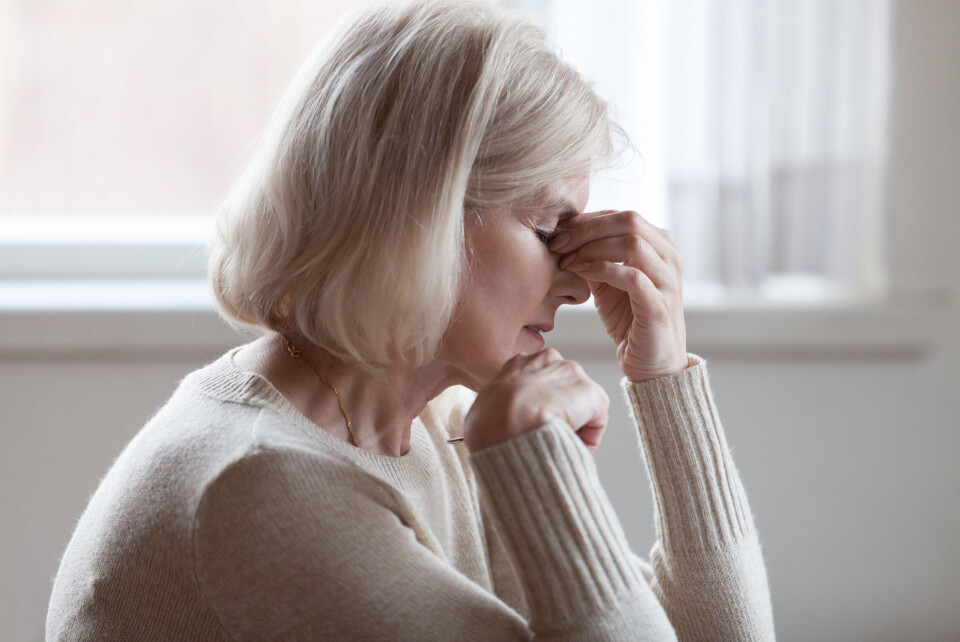-
QR code to replace paper instructions for 100 medicines in France in new trial
Paracetamol and cholesterol medication to be included in scheme that launches this autumn
-
Online ‘anti-waste’ supermarket offers deals on everyday items in France - we test it
Discounts of 10% to 50% available on brand products
-
The curious case of Good Friday: Why only some parts of France have the day off
Three French departments benefit from two extra public holidays
Covid France: New figures and extra help for long Covid sufferers
It comes as another new variant is detected near the Spanish border

A new database platform to help people with long Covid in France is set to be operational before the end of the year, the MP in charge of the system has said.
It comes as hospitalisations from suspected Covid cases are once again on the rise in France, from two age groups in particular.
A +54% (107 individuals) increase in those under the age of 2, and +56% (426 individuals) rise in hospitalisations for those between 15 - 74 for suspected cases of Covid were recorded in the week from August 14 – August 20, according to Santé Publique France.
Among all age groups, Covid hospitalisations were up by 41% compared to the previous week (2,197 patients compared to 1,555 the week before.)
Doctors stress though that these numbers are very low when compared to at the height of the pandemic.
Read more: Covid ‘rebound’ in France: Which areas, and are doctors worried?
The long Covid platform will keep a record of patients with the condition, and enable them to be formally recognised by their doctor and the national health system for the purposes of reimbursement for treatment.
The system was proposed by Renaissance MP Stéphanie Rist, who is also a doctor. It was voted into law on January 24, 2022, and is finally set to be operational before the end of 2023, after the legal decrees are published.
“The platform’s establishment will allow people to be better informed, better cared-for, and to know what treatment options are possible closer to them,” Ms Rist told FranceInfo.
She added that patients who are suffering from long Covid symptoms, so for weeks or months after having been infected, can already seek appropriate care from their GP.
Read more: Two million people have long Covid in France, new figures show
Read more:Covid-19: French experts respond to new studies on long-term effects
She said: “Already, there is recognition of the condition as a long-term illness, off the list, for certain long-standing Covid conditions, and recognition of it as an occupational disease.
“You don't have to wait for the publication of these decrees to be covered.”
It comes as associations such as Après J20, a group of patients and advocates for long Covid, have claimed that the current ‘case-by-case’ treatment system is insufficient, and causes some doctors to not take long Covid patients seriously.
President of the Après J20 association, Pauline Oustric, has called for the condition to be formally recognised as a long-term illness (known in France as an affection de longue durée, (ALD)), to enable treatment to be better reimbursed by the state.
Ms Oustric said: “There is still a major difficulty in having [the condition] acknowledged. Many doctors don’t believe their patients.”
Ms Rist conceded that the condition can be “difficult to diagnose”. She said: “Fatigue can be linked to many other conditions, as can joint pain. But these diagnoses are important, for financial recognition and for patients’ treatment plans.”
Health authority La Haute Autorité de Santé is set to publish a guide imminently to help doctors diagnose and treat long Covid, she said, and added that research on the condition is also “continuing”.
“People with long Covid must not be forgotten in the crisis,” said Ms Rist.
Pirola: New variant near French-Spanish border
It comes as news of another variant of the virus is causing concern near the French-Spanish border in Catalonia.
The strain is thought to be a new Omicron subvariant. Dubbed Pirola or B.2.86, it has been classified as a ‘variant of interest’ by the World Health Organization.
An epidemiologist told Spanish newspaper El Periodico that B.2.86 could be a “significantly different virus”. It is “similar to the leap that happened between the Delta and Omicron variants,” said Dr Roger Paredes, head of infectious diseases at the Germans Trias i Pujol University Hospital in Badalona, Barcelona.
Pirola has been detected in northern Spain but also in Denmark, the UK, Israel, Switzerland, and South Africa.
Its proximity to France means that it is likely to be detected soon in this country too, but health authority Santé publique France (SPF) said in its latest update that the strain had “not yet been identified” in the country.
However “all those involved in the surveillance of SARS-CoV-2 variants remain vigilant,” it said.
France is set to offer new Covid boosters to all people at high risk of serious illness, alongside the seasonal flu campaign, this autumn. Cases of Covid are currently rising, but not at concerning levels, said SPF.
Read also
‘Long Covid’: France considers how to help long-term cases
Covid ‘rebound’ France: What are rules for testing, isolation, masks?
Five questions on France’s new Covid vaccination campaign
























